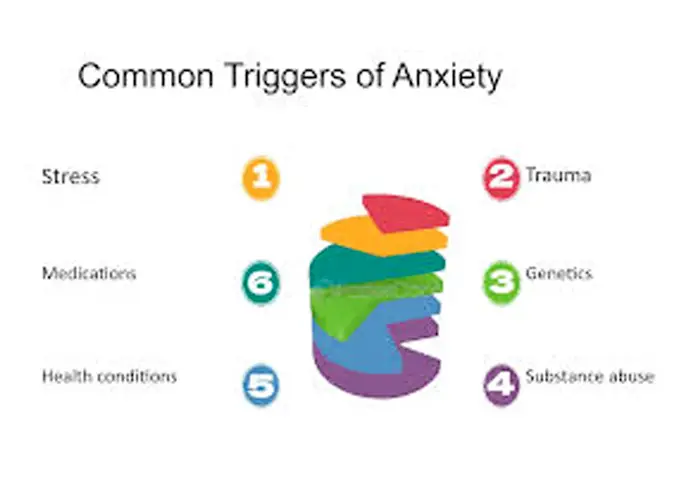Starting university is an exciting new chapter—but for many students, it’s also one filled with anxiety. From academic pressure to social expectations and financial worries, university life can feel like navigating a stormy sea. The good news? You’re not alone, and with the right tools and mindset, you can stay afloat. This guide explores common causes of university anxiety, strategies to manage it, and how to thrive in your academic journey.
Understanding University Anxiety: What It Really Means
University anxiety isn’t just about feeling nervous before exams. It can include:
- Overwhelming stress about coursework
- Fear of failure or underperforming
- Social anxiety in new environments
- Feeling isolated or homesick
- Financial pressure or uncertainty about the future
These feelings are more common than you might think. In fact, according to a recent global study, over 60% of university students report experiencing moderate to severe anxiety at some point during their academic life.
Common Triggers of University Anxiety
University life introduces a variety of stressors that can act as anxiety triggers. Understanding them can help you find healthier ways to respond.

Academic Pressure
The fear of not meeting academic expectations is a major stressor. Deadlines, exams, and presentations can feel overwhelming—especially when you’re juggling multiple subjects or competing for top grades.
Social Transitions
Whether it’s making new friends, fitting into a new culture, or adjusting to group projects, social anxiety can creep in fast. Students who are introverted or from different cultural backgrounds may feel even more out of place.
Financial Stress
From tuition fees to daily living expenses, financial stress can weigh heavily. Many students take up part-time jobs to manage expenses, which only adds to their workload.
Uncertainty About the Future
The pressure to choose the “right” career path can lead to chronic worry. Questions like “Will I get a job after graduation?” or “Is this degree even worth it?” often haunt students.
Signs You Might Be Dealing With University Anxiety
It’s not always easy to recognize anxiety. Here are some common symptoms that may indicate you’re experiencing more than just regular stress:
| Emotional Signs | Physical Signs | Behavioral Signs |
|---|---|---|
| Feeling overwhelmed | Trouble sleeping | Avoiding classes |
| Constant worrying | Headaches or muscle tension | Withdrawing from social life |
| Difficulty concentrating | Fatigue or low energy | Procrastination or perfectionism |
If you’re experiencing several of these symptoms regularly, it may be time to seek support.
Strategies to Manage and Overcome Anxiety
While anxiety can feel overpowering, it’s absolutely manageable. Here are practical, research-backed strategies to help reduce anxiety and build emotional resilience.
1. Build a Routine That Supports Your Mental Health
Creating a structured daily routine can reduce feelings of chaos and unpredictability.
- Wake up and sleep at consistent times
- Schedule regular breaks during study sessions
- Prioritize nutrition and hydration
- Make time for activities you enjoy
2. Break Big Tasks Into Smaller Goals
Breaking assignments into manageable steps can help avoid last-minute panic and procrastination. Use planners or digital tools like Trello or Notion to stay organized and track progress.
3. Practice Mindfulness and Meditation
Mindfulness techniques have been shown to reduce anxiety and improve focus. Even 10 minutes a day of guided meditation or breathing exercises can significantly reduce stress levels.
4. Stay Physically Active
Exercise isn’t just for physical health—it’s one of the best ways to release stress hormones like cortisol and boost mood-enhancing endorphins. A short walk, a yoga session, or even dancing to your favorite song can do wonders.
5. Connect With Others
Social support is a powerful buffer against anxiety. Don’t isolate yourself—reach out to friends, join student groups, or attend university events.
If socializing feels intimidating, start small: say hello to a classmate, join a study group, or connect with someone over shared interests.
6. Seek Professional Help When Needed
There’s no shame in needing help. Most universities offer free or low-cost mental health services, including counseling, therapy, and workshops.
If you’re in crisis or dealing with ongoing anxiety that interferes with your daily functioning, speaking with a mental health professional is essential.
Building Long-Term Resilience
Managing anxiety isn’t just about getting through today—it’s about equipping yourself for the long haul.
Learn to Reframe Negative Thoughts
Practice identifying negative self-talk and replacing it with kinder, more balanced thoughts. For example:
- Instead of “I’m going to fail this course,” try “I’m doing my best, and I can always ask for help.”
Accept That Perfection Isn’t Realistic
Let go of the myth that you need to be perfect to succeed. Mistakes and setbacks are part of learning and growing.
Practice Self-Compassion
Speak to yourself like you would to a close friend. Celebrate small wins, forgive yourself for slip-ups, and acknowledge your effort.
Conclusion: You’re Stronger Than You Think
University can be a transformative, challenging, and emotional journey. But remember, anxiety is not a weakness—it’s a signal that something needs your attention. By learning to manage stress, seek support, and practice self-care, you can stay afloat even in the stormiest seas.
You’re not alone. Thousands of students have felt what you’re feeling—and they’ve come out stronger on the other side. With the right mindset and strategies, so can you.




